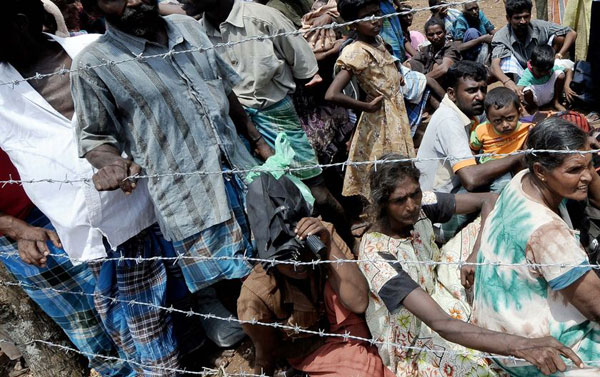Human Rights in Sri Lanka

The most violent place in Asia at the moment is Sri Lanka, and the state has not taken any serious steps to bring it under control. The state blames the Liberation Tigers of Tamil Eelam (LTTE) for creating the violence in the country, and the LTTE blames the Sri Lankan government, acting through the military and its paramilitary forces, as being responsible. There is talk of “war” on both sides, but each claims to be merely in defensive military positions. Such propaganda only manifests the absence of an agent to bring the violence under control. In response to local and international criticism of abductions, disappearances, extrajudicial killings, torture and other forms of serious crimes and gross abuses of human rights, the president has appointed a local commission of inquiry, and a group of people from the international community has been given permission to observe their work. However, this move has not created confidence or credibility inside or outside of the country.
The violence in Sri Lanka that presently afflicts the country has been aggravated by the collapse of the rule of law for a considerable time. The policing system suffers from an institutional collapse; the judiciary is faced with a serious crises; the government lacks the capacity to carry out its normal functions of protection. Meanwhile, the enforcement of strict emergency regulations will only aggravate the violent situation, and there are no local or international initiatives to address the problems plaguing the country.
The president acted in open defiance of the Constitution and the provision of the 17th Amendment that was adopted in 2001 to deal with the crisis of the rule of law. The Constitution does not grant any power to the president to abandon the implementation of parts of the Constitution. However, the courts of Sri Lanka have interpreted the impunity of the president for acts and omissions, both official and personal, as granted under Article 35(1) of the Constitution as a blanket clause, and the judges consequently have excluded themselves from adjudication relating to acts of the president. The Supreme Court, however, did hold the president’s signature to the optional protocol of the International Covenant on Civil and Political Rights (ICCPR) as ultra vires. In short, the courts in recent years have minimised their role in the protection of the rights of the people.
Source : www.humanrightsblog.org
Major human rights groups such as Amnesty International and Human Rights Watch, as well as the United States Department of State and the European Union, have expressed concern about the state of human rights in Sri Lanka. Both the government of Sri Lanka and the separatist Liberation Tigers of Tamil Eelam (LTTE) are accused of violating human rights. Amnesty International stated in 2003 that there was a considerable improvement in the human rights situation attributed to the peaceful context of a ceasefire and peace talks between the government and the LTTE.
However LTTE continued with its terrorist activities by continuing in killing it’s opponents, innocent civilians, as well as unarmed members of government forces. A rebel leader named Karuna left LTTE as he opposed to this violation of ceasefire agreement and other terrorist activities. In its 2006 report, however, they stated that “escalating political killings, child recruitment, abductions and armed clashes created a climate of fear in the east, spreading to the north by the end of the year”, whilst also outlining concerns with violence against women, the death penalty and “numerous reports of torture in police custody”. Although Sri Lanka has not officially practiced the death penalty since 1976, well-documented cases of state-sponsored ‘disappearances’ and murders by non-partisan humanitarian organizations, notably Human Rights Watch, contradict official statements.




